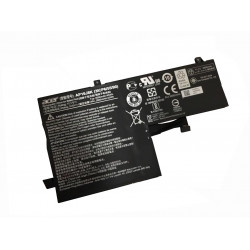
As the world moves towards sustainable and eco-friendly solutions, battery technology is no exception. With the increasing demand for renewable energy, there is a growing need for more efficient and sustainable battery technologies. In this article, we will explore the emerging trends in battery technology and provide insights into predictions for the future.
Dominance of Solid-State Batteries
One of the biggest trends in the battery technology industry is the emergence of solid-state batteries. Solid-state batteries are considered the future of energy storage due to their numerous advantages over traditional lithium-ion batteries. Solid-state batteries offer higher energy density, longer lifespan, and improved safety, making them ideal for use in electric vehicles and other applications that require high-performance batteries.
Solid-state batteries use a solid electrolyte instead of the liquid electrolyte used in traditional lithium-ion batteries. This solid electrolyte improves the safety of the battery by reducing the risk of thermal runaway, which can cause fires and explosions. Additionally, solid-state batteries offer higher energy density, allowing for more energy to be stored in a smaller space. This makes them ideal for use in electric vehicles, where space is at a premium.
Importance of Battery Storage Systems for Renewable Energy
Renewable energy sources such as solar and wind power are becoming increasingly important, but they have one major drawback: they are intermittent. The sun doesn't always shine, and the wind doesn't always blow. This makes it difficult to rely solely on renewable energy sources to power our homes and businesses.
Battery storage systems are essential for stabilizing the grid during periods of high demand and providing backup power during power outages. With the increasing use of renewable energy sources, battery storage systems are becoming an integral part of the energy infrastructure. Battery storage systems can store excess energy produced by renewable sources during periods of low demand and release it back into the grid during periods of high demand. This helps to stabilize the grid and reduce the need for fossil fuel power plants.
Continued Development of Sustainable and Eco-Friendly Battery Technologies
Sustainability and eco-friendliness are becoming increasingly important in the battery technology industry. With the world moving towards a more sustainable future, there is a growing demand for battery technologies that are both efficient and eco-friendly. Companies are investing in research and development to create batteries that are more sustainable, such as sodium-ion batteries and lithium-sulfur batteries.
Sodium-ion batteries are a promising alternative to traditional lithium-ion batteries. Sodium is abundant and inexpensive, making it an attractive option for battery production. Additionally, sodium-ion batteries are safer than lithium-ion batteries, as they do not produce the same thermal runaway risks.
Lithium-sulfur batteries are another promising alternative to traditional lithium-ion batteries. Lithium-sulfur batteries offer higher energy density and a lower environmental impact than traditional lithium-ion batteries. Additionally, they are cheaper to produce, making them an attractive option for mass production.
Advancements in Technology
Advancements in technology are driving the future of battery technology. Researchers are exploring new materials, such as graphene and silicon, that could potentially improve battery performance. Additionally, innovations in battery management systems and charging technology are expected to lead to increased energy density, longer lifespan, and improved safety in batteries.
Graphene is a promising material for battery production. It is lightweight, strong, and has excellent electrical conductivity. Additionally, graphene has a high surface area, which makes it an ideal material for use in batteries. Researchers are exploring the potential of graphene-based batteries for use in electric vehicles and other high-performance applications.
Silicon is another promising material for battery production. Silicon has a high energy density, making it an ideal material for use in batteries. However, silicon has a tendency to expand and contract during the charging and discharging process, which can cause the battery to fail. Researchers are exploring ways to overcome this problem and make silicon-based batteries a viable option for mass production.
Predictions for the Future
The future of battery technology is bright, with several predictions for the industry. Solid-state batteries are expected to dominate the market in the coming years, with the potential to revolutionize the electric vehicle industry. Battery storage systems are also expected to become increasingly important as renewable energy sources become more prevalent. The continued development of sustainable and eco-friendly battery technologies is expected to contribute to a greener future.
Conclusion
In conclusion, sustainable battery technology is the future of the energy industry. The emergence of solid-state batteries, the importance of battery storage systems for renewable energy, and the continued development of sustainable and eco-friendly battery technologies are all contributing to a more sustainable and efficient energy future. Advancements in technology are also expected to lead to improved battery performance, making batteries more efficient, durable, and safer. As the world moves towards a more sustainable future, battery technology will play an increasingly important role in powering our homes and businesses.







